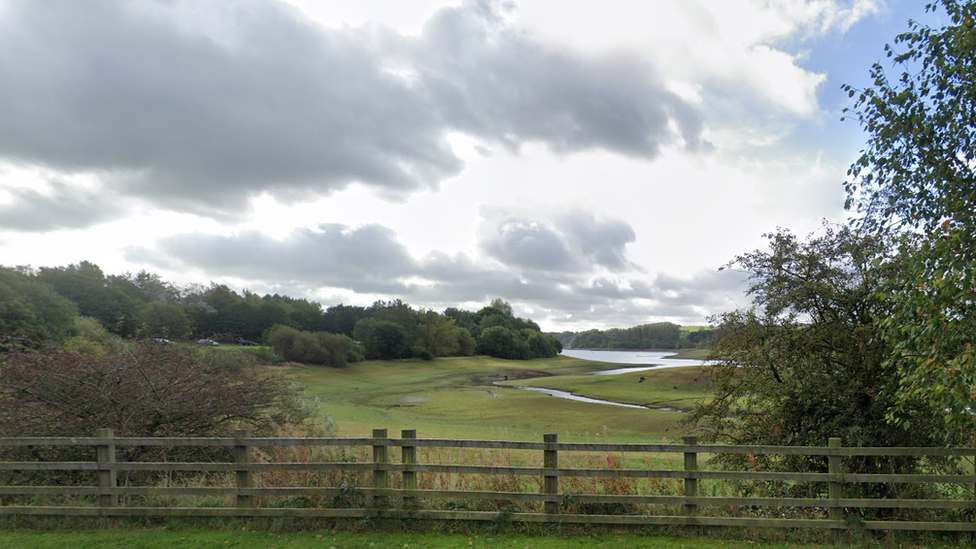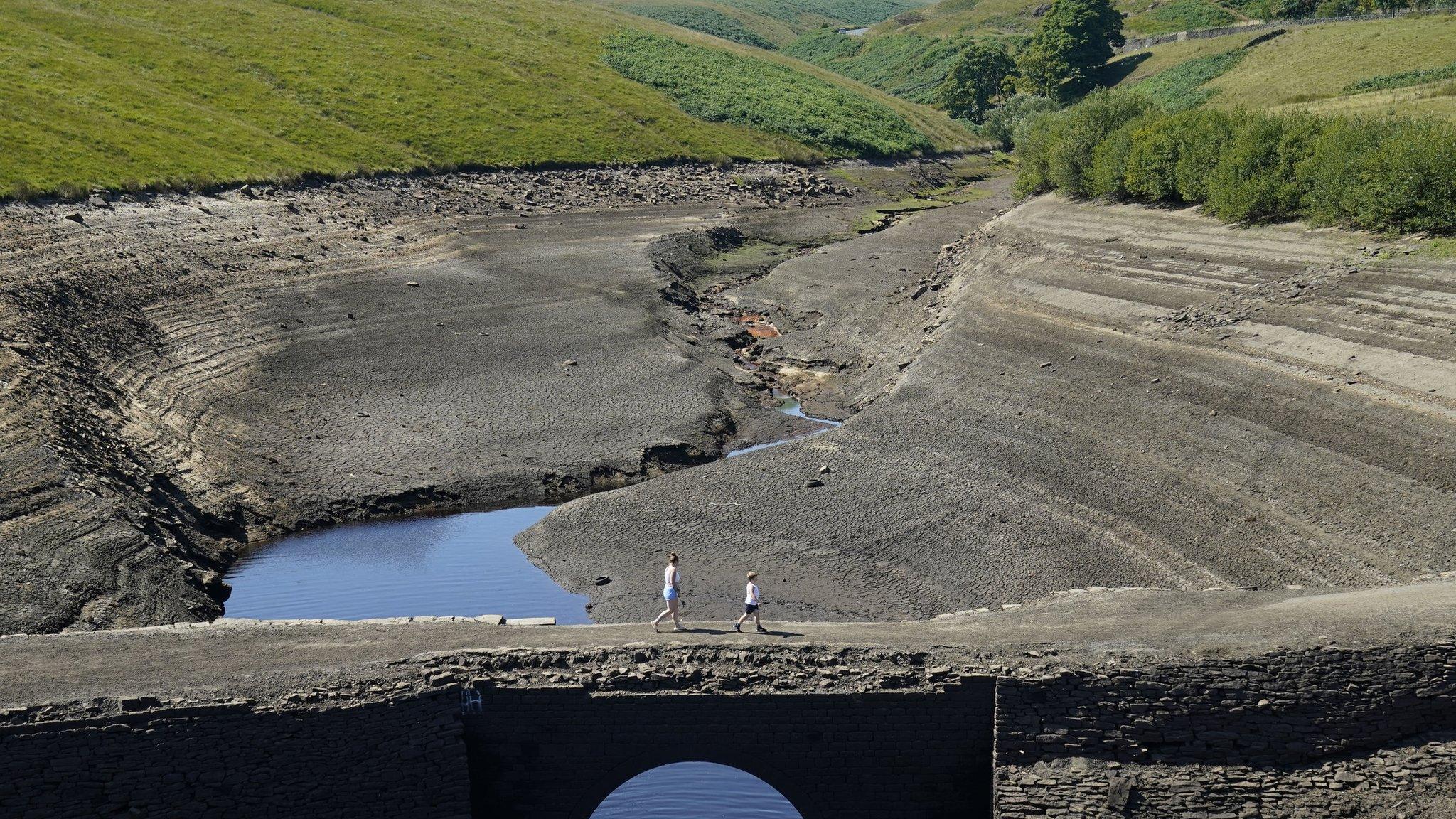Drought permit needed for Tittesworth reservoir after driest summer
- Published

Levels need to return to about 50% to have enough supplies for spring and summer, Severn Trent said
Water needs to be restricted from a dwindling Staffordshire reservoir after one of the UK's hottest summers, Severn Trent Water said.
Levels at Tittesworth reservoir, which supplies more than half a million people, are at 36% and a drought permit will help restore levels to 50%.
The permit will allow the firm to retain more water, rather than release it into rivers, a spokesperson said.
It does not affect customers and an "average" winter will normalise levels.
Doug Clarke, water resources manager for Severn Trent Water, said they release water from the reservoir near Leek into the River Churnet and the permit would mean a smaller amount would be let out through winter to ensure there is enough for next spring and summer.
The firm is one of several around the country to submit an application the Environment Agency due to the hot, dry summer, he said.
"This is actually the best time to do a drought permit like this because what it allows us to do is release a little bit less water from the reservoir into the river at the time when you are getting more rain and there'll be more of a natural flow in the river so the risk of any environmental harm or damage is obviously significantly reduced because you're doing it at this time of year," he said.
A number of conditions must be met for the permit to be granted including the company following a drought plan and there being an exceptional shortage of rainfall - six out of the last seven months have been well below average, he said.
Through the summer Severn Trent has been taking measures to use other sources to manage its network, including turning off its treatment works that uses water from the reservoir.
An average winter will bring levels back to normal after the driest six months since 1850, Mr Clarke said.
The firm is also appealing to customers to use less water in their homes in the winter as they have done in the summer.
An announcement on whether the permit has been given will be made within the next two weeks.

Follow BBC West Midlands on Facebook, external, Twitter, external and Instagram, external. Send your story ideas to: newsonline.westmidlands@bbc.co.uk, external
Related topics
- Published14 October 2022

- Published14 August 2022

- Published13 August 2022
